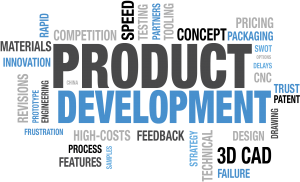 Business is initiated and progressed by sellers and buyers establishing contact and making arrangements. Often this is begun through Sales and Marketing approaches. (And, metaphorically, in most situations everybody is actually selling something).
Business is initiated and progressed by sellers and buyers establishing contact and making arrangements. Often this is begun through Sales and Marketing approaches. (And, metaphorically, in most situations everybody is actually selling something).
Sometimes high-level introductions can precede detailed business discussions. But in all such instances, how are those initial contacts made? How do we predictably connect to others?
Also, what happens when discussions stall, or when new players must engage to continue progress?
The whole process can be flawed and fraught with hiccups. Yet who on either side will normally not suffer by all-too-common delays?
Every day I see people reaching out to others, but often with surprisingly mixed results.
Amazingly, the delays and failures are many times tied directly to the means, or method by which approaches are made.
Those professionals whose livelihoods are dependent on successfully contacting and engaging others have often figured this out. But frequently, even in their cases they do not always consider seemingly obvious liabilities.
And importantly, for most executives, the ability to reach out and connect with others will directly impact the success of their careers.
In business, leaders at every level generally tend to have an instinctive and predominant mechanism through which they first approach others. Perhaps they make the phone call, drop an e-mail, or engage through the other person’s Admin?
On the receiving end we correspondingly might react slightly differently to these approaches, depending on our own personal and cultural biases. Maybe you’re an e-mail person? Perhaps you prefer to speak directly to others on most issues?
In many instances we prioritize not only what approaches we respond to (given that issues are often not always clear when we pick up a message), but also the order in which we check for messages. Do e-mail first, get the notes from the Admin. Everybody can be a little different.
This means that in an overloaded world of often frantic business interactions, one size often will NOT fit all. The result: you might well find yourself sending voice messages to a person who’s an e-mail guy. Don’t expect a fruitful outcome.
When you really have to reach someone and it’s a fairly new contact, you’ll often need to fish around to find the best channel through which they’ll engage reliably. And even then it might change with time and/or subject.
Over the years I’ve encountered many voice-only, or e-mail only Execs who seem like they can be reached in no other way. Perhaps this just more conveniently fits their style of operation? Some five years ago others became responsive to Texts; it appears that lulls in meetings offer great opportunity to respond to real time/brief issues.
The message is clear. You need to be selective with your approach mechanism. If you run into trouble reaching someone, then keep making carefully considered changes until you engage and interact. Once you do, make a point of asking and checking how they want to continue the exchanges, if and when you need them.
The choices for productive channels (not prioritized) to engage others are most commonly:
- Work/Direct phone
- Mobile number
- Home number
- Voice message
- Via the admin
- Text
- Through colleagues
There are also the myriad Social Media channels via which connections can be opened up; such as Facebook and similar. Not all of these channels are appropriate in every case. But, don’t be afraid to be creative.
Remember, business is not like a fine wine. It usually does not get better with time. So, make sure you take action; don’t wait too patiently.
When you’re making first approaches ask around to find out what’s the best way to get a response from this particular person. And, don’t be one of those less assertive people (aka victims) avoiding more direct contact methods as a result of an overly rationalized habit. When needing to make an important approach, boldness is often required.
If you’re an organized person you’ll probably also need to adapt your processing and records for reaching others to reflect the (often multiple) channels you might be exploring. Again, one size certainly does not fit all, anymore. So, get yourself set up for using varied communication channels.
Never forget: if you prioritize the means by which you check for approaches made to yourself, then it’s likely so does the other guy. And, if you’ve enjoyed success reaching someone a particular way in the past, it doesn’t mean that channel won’t change in the future or vary by subject.
Be flexible and multiply your approach mechanisms when needing to secure those critical engagements. There’s no sense in wasting hours, days or weeks to figure out you’re not getting through.
Ian R. Mackintosh is the author of Empower Your Inner Manager Twitter @ianrmackintosh









